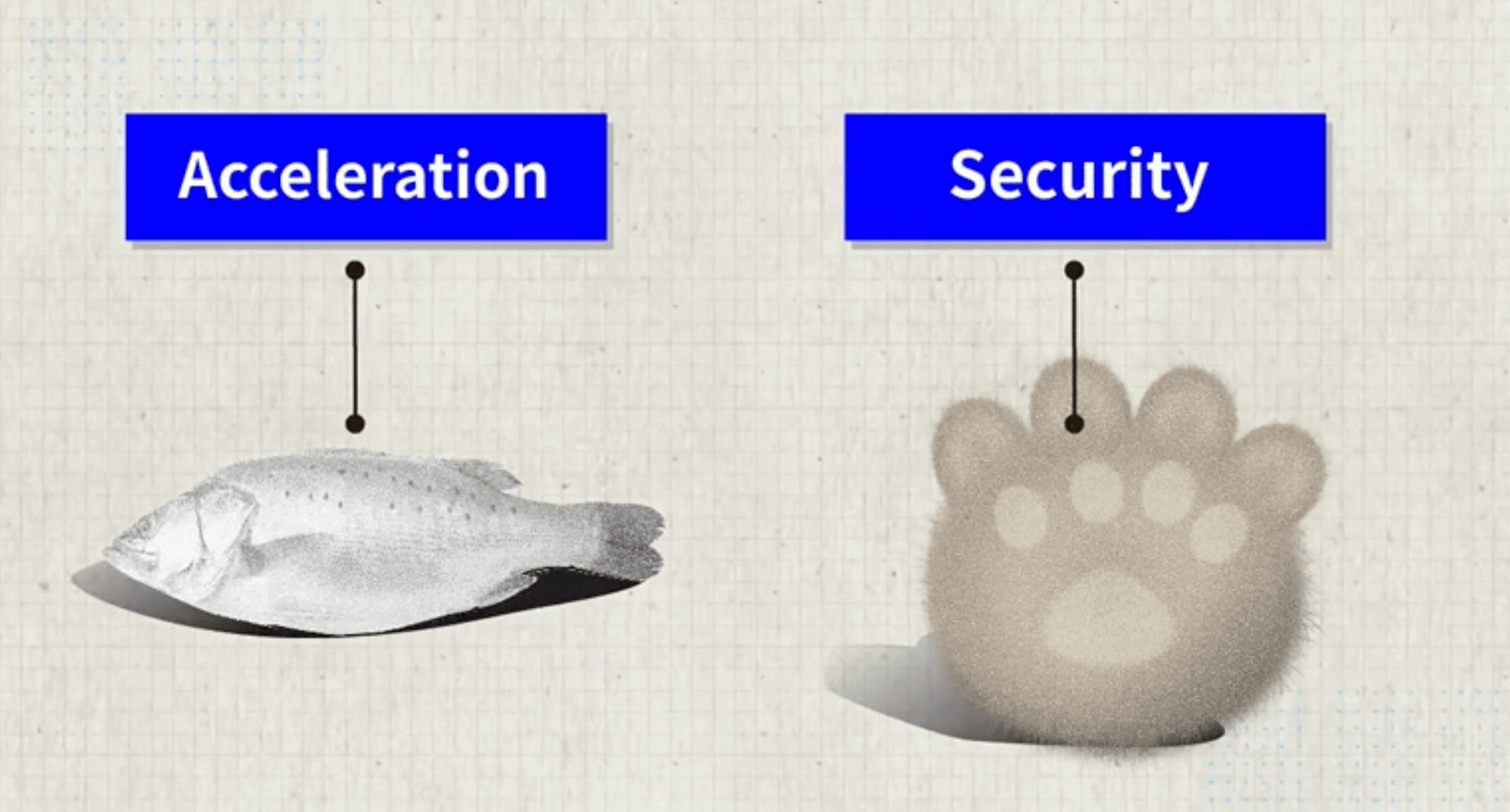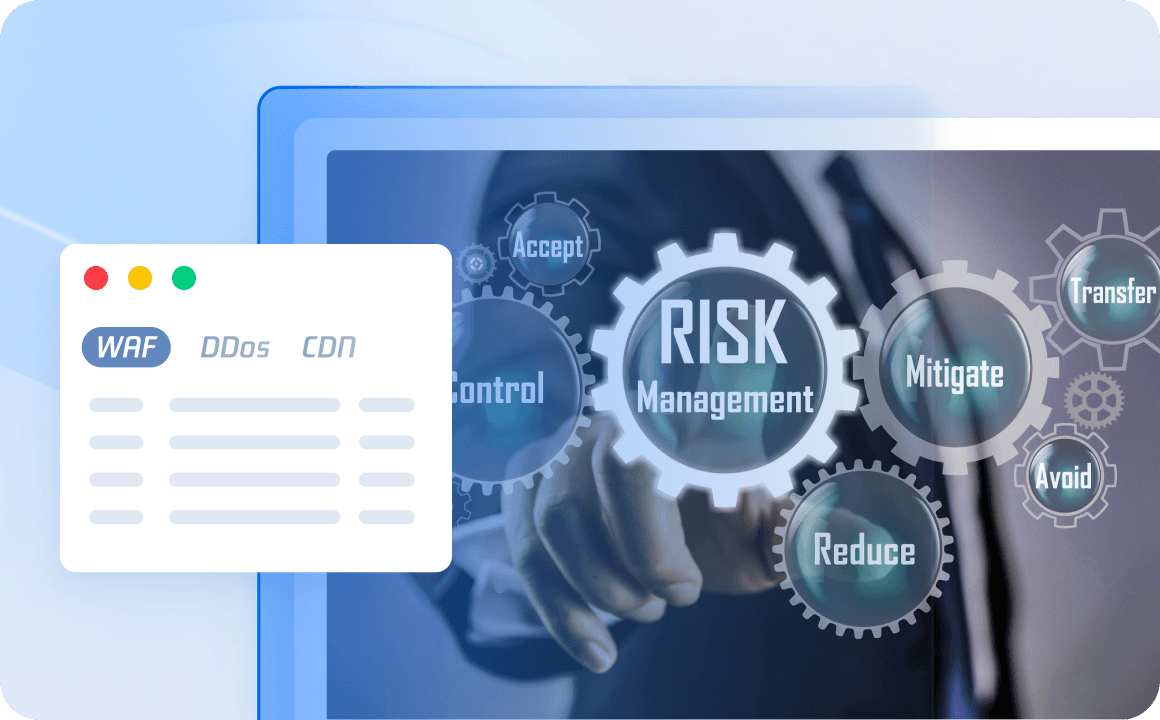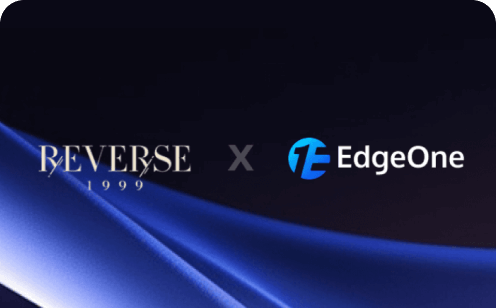How to Secure Your Website on a Budget with Cheap CDN Services in 2025

In the world of digital security, a persistent myth persists: that robust website protection requires a significant financial investment. Many website owners and small business operators believe that while affordable Content Delivery Networks (CDNs) can enhance performance, they inevitably compromise security.
The landscape of website security has become remarkably democratized. Technologies and protective measures that were once only available to enterprise-level businesses with six-figure security budgets are now accessible to nearly everyone. This shift is especially evident in the CDN market, where budget-friendly options now offer impressive security features that would have been unimaginable at such price points just a few years ago.
This transformation comes at a critical time. In 2025, websites face an unprecedented range of threats. With increasingly sophisticated Distributed Denial of Service (DDoS) attacks, automated bot campaigns, credential stuffing attempts, and evolving injection techniques, even small websites have become attractive targets. The days of cybercriminals only targeting high-profile sites are long gone; today’s automated attack tools allow for efficient targeting of websites of all sizes.
This guide will explore how today’s affordable CDNs can provide legitimate security protection without the high costs. We will examine the essential security features available through budget-friendly CDN services, provide implementation strategies, and highlight three standout providers offering the best security-to-cost ratio in 2025.
Understanding Website Security Fundamentals
Before diving into specific CDN solutions, it's essential to understand the threat landscape websites face in 2025. The Open Web Application Security Project (OWASP) continues to track the most critical web application security risks, and their Top 10 list remains a valuable reference point.
2025's Common Security Threats
- DDoS Attacks: These have evolved beyond simple volumetric attacks to include more sophisticated application-layer (Layer 7) attacks that target specific vulnerabilities in web applications.
- SQL Injection: Despite being a known vulnerability for decades, SQL injection remains prevalent as websites continue to implement database-driven functionality without proper input sanitization.
- Cross-Site Scripting (XSS): Attackers inject malicious scripts into otherwise benign websites, which then execute in users' browsers, potentially stealing cookies, session tokens, or other sensitive information.
- Bot Traffic: From credential stuffing to content scraping, automated bots represent up to 40% of all internet traffic in 2025, with a significant portion being malicious.
- API Vulnerabilities: As websites increasingly rely on APIs for functionality, these interfaces have become prime targets for attackers seeking to exploit poorly secured endpoints.
- Ransomware Website Attacks: A growing trend where attackers compromise websites and encrypt content, demanding payment for restoration.
- Supply Chain Attacks: Compromising third-party resources (like JavaScript libraries) that your website depends on.
How CDNs Function as Security Tools
While Content Delivery Networks were originally designed to accelerate content delivery by caching website assets across global server networks, they've evolved to become frontline security tools for several reasons:
- Strategic Positioning: CDNs sit between your website's origin server and visitors, allowing them to inspect and filter traffic before it reaches your infrastructure.
- Distributed Architecture: The same global network that speeds up content delivery also provides resilience against DDoS attacks by absorbing and distributing malicious traffic.
- Traffic Analysis Capabilities: Modern CDNs continuously analyze traffic patterns to identify anomalies that could indicate attacks.
- Rule-Based Filtering: CDNs can apply security rules consistently across their entire network, blocking malicious requests before they reach your server.
Key Security Metrics for Websites
Regardless of your budget, certain security fundamentals apply to all websites:
- Time to Mitigate: How quickly your security solution can identify and respond to an attack.
- False Positive Rate: How often legitimate traffic is mistakenly blocked.
- Coverage Against OWASP Top 10: Protection against the most common and dangerous web vulnerabilities.
- SSL/TLS Implementation: The strength of your encryption and certificate management.
- Bot Detection Accuracy: The ability to distinguish between legitimate automated traffic (search engines) and malicious bots.
Must-Have Security Features in Budget CDNs

In 2025's market, even affordable CDN services include impressive security capabilities that were previously available only in premium tiers. Here are the essential security features to look for in budget-friendly CDN solutions:
Free/Low-Cost SSL Certificates
HTTPS is no longer optional—it's a baseline expectation for all websites. Fortunately, budget CDNs now routinely offer:
- Automated Let's Encrypt integration: Free SSL certificates with automatic renewal
- One-click SSL deployment: No technical expertise required
- Custom certificate upload options: For organizations with existing certificates
- TLS 1.3 support: The latest encryption protocols without additional cost
The days of paying premium prices for basic SSL functionality are over. Even the most affordable CDNs now provide robust certificate management with minimal configuration required.
Basic DDoS Mitigation Capabilities
DDoS protection has seen perhaps the most significant democratization in CDN security features:
- Layer 3/4 protection: Defense against network-level attacks
- Limited Layer 7 mitigation: Protection against basic application-level attacks
- Traffic anomaly detection: Automated systems that identify unusual patterns
- Rate limiting: Controls to prevent request flooding
While premium solutions still offer more sophisticated protection, budget CDNs now include DDoS mitigation that would have been considered advanced just a few years ago.
Web Application Firewall (WAF)
Basic WAF protection has become standard in many affordable CDN packages:
- OWASP Top 10 rule sets: Protection against common vulnerabilities
- IP reputation filtering: Blocking traffic from known malicious sources
- Basic rule customization: Limited ability to tailor security rules
- Regular rule updates: Protection that evolves as threats change
These WAF capabilities provide substantial protection against common web application attacks without requiring security expertise to configure.
Bot Management
Distinguishing between legitimate and malicious automated traffic:
- Basic bot detection: Identifying and categorizing automated traffic
- Simple challenge mechanisms: CAPTCHAs or JavaScript challenges for suspicious requests
- Known bot signature detection: Blocking recognized malicious bot patterns
- Search engine bot allowlisting: Ensuring legitimate bots can still access your site
Security Headers and Configuration
Modern budget CDNs typically provide:
- One-click security header implementation: Content Security Policy, X-XSS-Protection, and other headers
- HSTS enablement: Forcing secure connections
- Cookie security settings: Protecting sensitive cookies
- Clickjacking protection: Preventing your site from being framed by malicious sites
DDoS Protection Through CDNs
Distributed Denial of Service attacks remain one of the most common threats websites face, with attackers constantly evolving their techniques. The good news is that CDN architecture is inherently well-suited to DDoS mitigation, and budget options now offer substantial protection.
How Cheap CDNs Provide Effective DDoS Mitigation
Affordable CDNs leverage several techniques to provide DDoS protection:
- Traffic Distribution: By their very nature, CDNs distribute traffic across multiple servers, making it harder for attackers to overwhelm any single point.
- Overcapacity: Even budget CDN providers maintain substantial spare capacity, allowing them to absorb attack traffic.
- Anycast Routing: Many affordable CDNs use anycast network addressing to distribute attack traffic across multiple data centers automatically.
- Edge Filtering: Malicious traffic is identified and blocked at the CDN's edge, before it reaches your origin server.
Layer 3/4 vs Layer 7 Protection
Budget CDN protection typically includes:
Layer 3/4 (Network/Transport) Protection:
- Protection against volumetric attacks like UDP floods
- TCP SYN flood mitigation
- ICMP flood blocking
- Amplification attack defense
Basic Layer 7 (Application) Protection:
- HTTP flood detection
- Simple request rate limiting
- Bad bot filtering
- Basic traffic pattern analysis
While premium CDN services offer more sophisticated Layer 7 protection with machine learning capabilities and advanced behavioral analysis, budget options now provide sufficient protection for most small to medium websites against common attack vectors.
Traffic Analysis and Anomaly Detection
Even affordable CDNs now incorporate:
- Baseline traffic modeling: Understanding normal traffic patterns for your site
- Automated anomaly detection: Identifying deviations from established patterns
- Real-time alerting: Notification when potential attacks are detected
- Traffic visualization: Simple dashboards showing attack traffic and mitigation
Real-World Case Study: Small E-commerce Site Survives DDoS
In early 2025, an independent online retailer with approximately 5,000 monthly visitors came under sustained DDoS attack during their seasonal sale. Using a budget CDN solution that cost less than $30 per month, they were able to:
- Absorb a 15 Gbps volumetric attack
- Automatically block traffic from the primary attacking networks
- Maintain 98.5% uptime during the 48-hour attack period
- Continue processing orders with minimal disruption
The attack would have completely overwhelmed their standard web hosting, but the CDN's distributed infrastructure successfully mitigated the impact. The total cost of protection was a fraction of what they would have paid for dedicated DDoS mitigation services.
Top 3 Secure & Affordable CDNs in 2025
1. EdgeOne
Price Range: $32/month for small business plans
Key Security Features:
- Advanced DDoS protection with 200 Tbps network capacity
- Machine learning-based bot management
- Free SSL with automatic renewal
- Security analytics dashboard
- 24/7 basic security monitoring
Standout Security Offering: EdgeOne's "Security Essentials" package combines enterprise-grade DDoS protection with an easy-to-use Web Protection at a price point accessible to small businesses. Their automated threat intelligence system continuously updates protection based on emerging threats.
Best For: Small to medium e-commerce sites and business websites requiring robust security with minimal configuration.
2. KeyCDN
Price Range: Pay-as-you-go starting at $0.04/GB with security features included
Key Security Features:
- Origin shield protection
- Free Let's Encrypt SSL integration
- DDoS protection up to Layer 7
- Real-time threat monitoring
- Block Bad Bots
Standout Security Offering: KeyCDN's transparent pay-as-you-go model includes security features without premium tiers, making it ideal for websites with variable traffic. Their Origin Shield feature provides an additional layer of protection for your hosting server.
Best For: Cost-conscious website operators with technical knowledge to optimize security settings and blogs or content sites with irregular traffic patterns.
3. BunnyCDN
Price Range: Starting at $1/month plus $0.01/GB for most regions
Key Security Features:
- DDoS protection included in base pricing
- Free shared SSL certificates
- Basic WAF functionality
- Token authentication for content protection
- GeoIP filtering
- HTTPS enforcement
Standout Security Offering: BunnyCDN's remarkably affordable entry point doesn't compromise on essential security, offering one of the best value propositions for basic protection. Their security features are designed for simplicity while remaining effective against common threats.
Best For: Startups, personal projects, and small websites looking for security essentials at the lowest possible price point.
When to Invest More: Security Limitations of Cheap CDNs
While affordable CDN services offer impressive security capabilities, it's important to understand their limitations and recognize scenarios that might justify additional investment.
Realistic Protection Boundaries
Budget CDN security typically has limitations in:
- Attack Sophistication: Protection against highly targeted, sophisticated attacks often requires premium solutions with advanced behavioral analysis.
- Customization Depth: Affordable options usually offer limited rule customization and fewer options for tailoring protection to specific applications.
- False Positive Management: Budget solutions may generate more false positives and provide fewer tools for tuning detection sensitivity.
- Support Response: Security incidents may have slower response times with basic support plans.
- Traffic Volume: Very large traffic spikes might exceed included protection levels.
Industries That May Need Enhanced Security
Consider upgrading beyond budget options if you operate in:
- Financial services: Handling payment information or financial transactions
- Healthcare: Managing protected health information (PHI)
- E-commerce at scale: Processing large numbers of transactions
- Government services: Dealing with sensitive citizen data
- Enterprise SaaS: Providing business-critical applications
Warning Signs That You've Outgrown Budget Security
It may be time to upgrade when:
- You experience attacks that bypass your current protection
- Compliance requirements demand more comprehensive security controls
- Your traffic regularly triggers rate limiting or protection thresholds
- False positives become increasingly disruptive to legitimate users
- You need detailed forensic capabilities for security incidents
Conclusion
The democratization of web security through affordable CDN services represents a significant milestone in cybersecurity accessibility. Website owners in 2025 no longer need to choose between adequate protection and budget constraints—today's affordable options provide a security foundation previously available only to organizations with substantial resources.
Modern budget-friendly CDNs deliver impressive protective capabilities at accessible price points. From effective DDoS mitigation to essential traffic filtering, bot management, and streamlined SSL deployment, these services enable businesses of all sizes to implement meaningful security measures without enterprise-level investments.
For website owners seeking to enhance their security posture while managing costs effectively:
- Take a security-first approach to CDN selection. Evaluate providers based on their included protection features, not just performance metrics.
- Implement layered defenses. Utilize the full spectrum of security tools your CDN provides rather than relying on single protection mechanisms.
- Fully activate included features. Many users leverage only a fraction of the security capabilities already available in their current plans—explore and implement all relevant protections.
- Recognize realistic protection boundaries. While budget options effectively defend against common threats, understand where limitations exist against highly sophisticated attacks.
- Continuously monitor and refine. Security requires ongoing attention—regularly review your protection measures and adjust configurations as both threats and your website evolve.
Among all security-focused CDN options available today, EdgeOne stands out by delivering exceptional value for budget-conscious website owners seeking robust protection. The EdgeOne security ecosystem combines enterprise-grade DDoS mitigation with user-friendly implementation, making advanced protection accessible without requiring specialized expertise.
Ready to experience enterprise-level security without the enterprise price tag? You can start with EdgeOne free plan that includes a generous 1TB of traffic—enough to thoroughly test all security capabilities under your specific traffic conditions. Don't leave your website vulnerable while considering your options—activate EdgeOne's comprehensive protection today and see firsthand how affordable effective security can be.
FAQs
Q1: Can affordable CDN services really provide adequate website security?
A1: Yes, in 2025 even budget-friendly CDNs offer substantial security features like DDoS protection, basic WAF functionality, and bot management that were previously only available in premium tiers.
Q2: How does a CDN help protect against DDoS attacks without expensive add-ons?
A2: CDNs inherently distribute traffic across multiple servers and data centers, allowing them to absorb attack traffic while their edge filtering identifies and blocks malicious requests before they reach your origin server.
Q3: Do I need technical expertise to implement security features through a budget CDN?
A3: Most affordable CDNs now offer one-click security implementations and user-friendly dashboards that require minimal technical knowledge, though more advanced customization may require some expertise.
Q4: When should I consider upgrading beyond a budget CDN for security?
A4: Consider upgrading when you experience attacks bypassing your current protection, when handling sensitive financial or healthcare data, or when your website scales to enterprise-level traffic volumes that regularly trigger protection thresholds.

